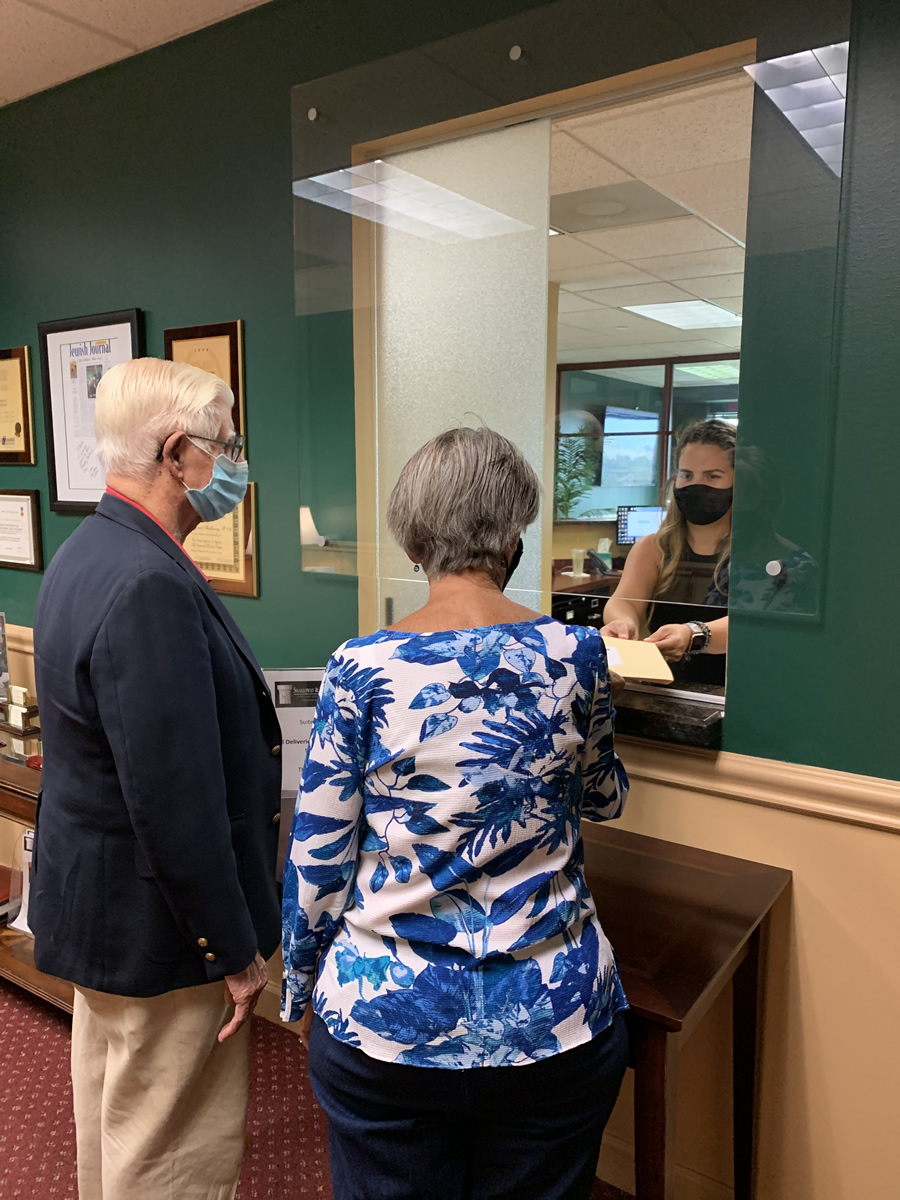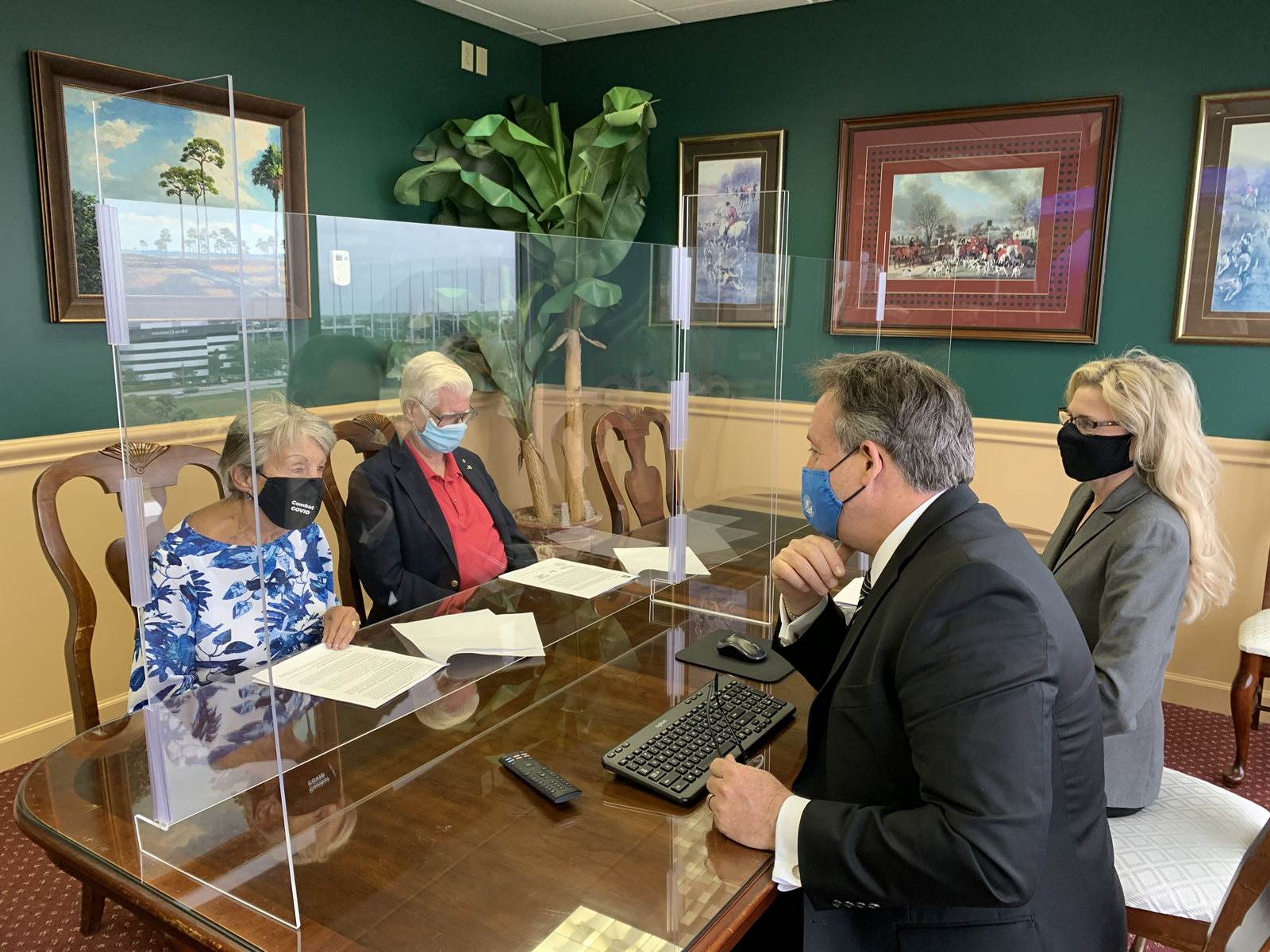The Global Covid-19 pandemic has altered the way everyone does business. For law offices the pandemic has given rise to remote depositions, virtual seminars and a variety of tele-presence meetings and consultations. When it comes to working in the office, contact between staff must be kept to a minimum and accommodations must be made to keep visitors safe. For clients intending to visit a law office, life has become more complicated. Many law firms are trying to find ways to balance the safety needs of their clients and staff with the duties of their practice as the institute new technologies and practices for their attorneys and staff.
For Elder and Special Needs Attorney, Mark Shalloway, this meant establishing new health and safety protocols for the entire office. To safely accommodate clients meetings during this time of Covid-19, the firm limits visitors to the office to one client at a time. Each person entering the office must wear a mask. Upon entry each visitor must have his or her temperature taken. From there, the next step is interacting with a receptionist through a glass panel where documents are examined and scanned. The firm has also added safety shields for documents signings.

Clients visiting the Law Offices of Shalloway & Shalloway in West Palm Beach, Florida
Whenever possible consultations are conducted remotely via ZOOM or conference call technology.
Speaking about the new health and safety measures G. Mark Shalloway explains the decisions behind the protocols:
We wanted to create a safe way for our clients to come into our offices while minimizing any risk to our team. Without question the pandemic has changed so much about the world of law and our practice. These new measures are our way of staying on top of the pandemic as much as possible and keeping our services operating for our clients as we keep the office open for our staff as well.
For law offices in the United States, the American Bar Association has published a series of Covid-19 safety guidelines and practices as part of its task force. The resources provided by the ABA include links to important federal and state authorities, guidelines on how to conduct remote services, and a collection of free videos.

